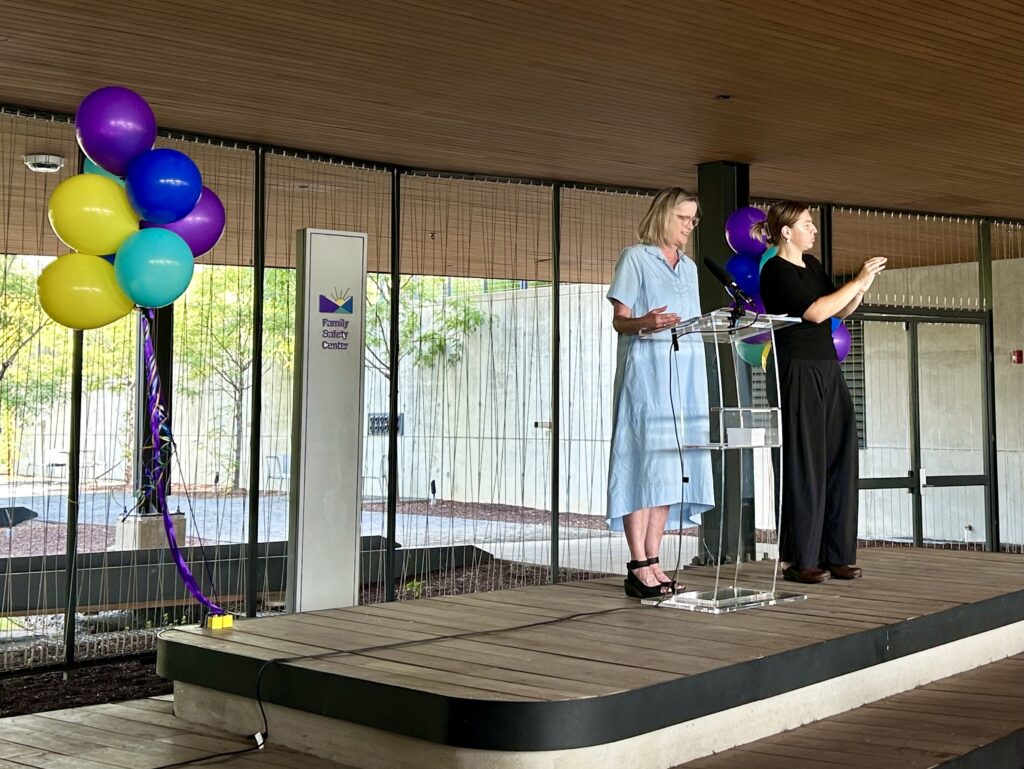
In 2013, a Nashville report identified ways the justice system could improve for domestic violence victims. A new assessment looks back at a decade of wins and highlights opportunities to improve.
Nashville has managed to close several gaps in the justice system over the years — creating the Office of Family Safety, family justice centers to connect victims to resources, and the Jean Crowe Advocacy Center inside the court house to help victims navigate the system. The city’s police officers are now required to assess the risk of a domestic violence case becoming deadly using a Lethality Assessment Protocol. And more criminal justice system workers are receiving training about how to handle domestic violence cases.
According to Diane Lance, the director of the Office of Family Safety, these are huge strides, but there’s more work to be done.
“It’s really important when you are trying to improve victim safety that you don’t forget about offender accountability,” Lance said at a press conference.
She added that holding domestic violence offenders accountable is her office’s next priority.
Problems that have not improved
In 2013, it was determined that bonds needed to be higher for domestic violence offenders. But according to the report, bond amounts have decreased over the past decade, and there is no consistency in setting higher bonds for repeat offenders. Part of the problem is that commissioners who set bond do not have access to someone’s full criminal history.
To address that, the city plans to hire six commissioner assistants who will run background checks, and two people who will ensure that offenders are following their bond conditions.
“Once an offender doesn’t think the court is paying attention or cares, they have no reason to comply with their bond conditions,” said Lance. “And that just leaves a victim in a place of tremendous risk.”
Another persistent problem is firearms dispossession in these dangerous domestic violence cases. Investigations by WPLN and ProPublica have found that in nearly 40% of domestic violence firearms homicides in Nashville between 2007 and 2023, victims were killed by someone who was legally prohibited from having a firearm. Enforcement of firearms prohibitions in Tennessee are lax, allowing guns to remain in dangerous hands. This was identified as a problem back in 2013.
And while the Office of Family Safety created a dispossession protocol, its application has been inconsistent. The report states that the circuit court has implemented dispossession compliance hearings, but general sessions court has not.
In 2026, the police department will hire its first gun dispossession investigator to enforce gun prohibitions, and ensure offenders are turning over their guns when the court orders them to.
The cost of slow progress
While the report is largely celebratory, some of the wins it highlights only came with the 2026 budget that passed this summer. The city has known about these issues for a decade, but it took until this year — and the release of this new report — to move on them.
There is a lot of urgency to move quickly on these issues in Tennessee, where women are killed by men at higher rates than most other states in the country. Often those homicides are committed with firearms. Research has shown that domestic violence offenders not only pose a risk to their families, but also are some of the most dangerous calls for police officers and often claim the lives of multiple victims at once.
Since the year the original report was released, more than 100 people were killed in domestic violence homicides in Davidson County, according to the Tennessee Bureau of Investigation. That includes children as young as 5 years old, and victims that reached out to the system for help only to slip through the cracks.

